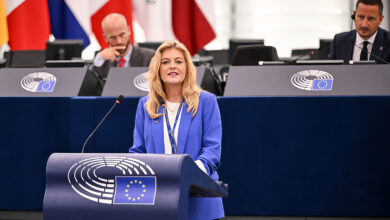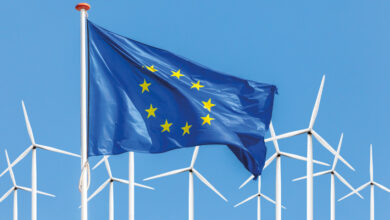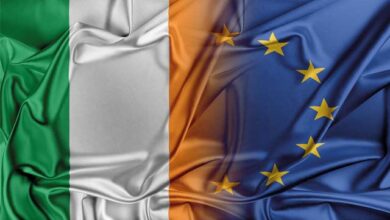The implications of Brexit
Tom Healy, Director of the Nevin Economic Research Institute considers the potential ramifications of Brexit for the EU and the island of Ireland.

The question of Brexit is a wake-up call for the European Union. Regardless of the outcome of the UK Referendum on 23 June 2016 the Union will never be the same again. If British people vote to leave the EU then the agreement of 20 February with the UK on various reforms is dead in the water.
If, on the other hand, the British people vote to stay ‘in’ a new precedent has been set. While the concessions made to the UK for the sake of keeping it within the EU fold may be viewed as very limited in the grand picture, they do however, offer the scenario of the UK becoming ever more detached from the rest of the EU, especially if the EU moves towards ‘ever closer union.’ In the course of the next 20 years the European Union is likely to grow, flourish and federalise, or, go into decline with a break up of its currency, free movement of people rules and possible exits or expulsions.
Muddling through might be the default realpolitik but one has the impression that following the storms of financial crisis, then Greece, now the migrant crisis and goodness knows what’s next, the European project (or the European Union project to be more precise) is managing on borrowed time. Even if the best is yet to come.
A changed Union
The orientation of policy in the European Union has evolved with changing membership as well as a changing world landscape. Notions of ‘social Europe’ have taken a back seat in deference to making Europe and its public institutions lean, mean and fit for competition with that other giant, the United States of America. The rationale for a strong economic and political unit to rally against communism to the East evaporated in 1990 although in a strange twist of history a new geo-political and trade related rationale for EU expansion towards the East has come back in recent times with the deterioration of relations between Russia and many countries to the West.
The case for Brexit is led by forces anxious to opt out of progressive European social norms such as they are and limited as they have become. Many Brexit advocates obsess about immigrants and the cost of free movement of labour and persons across internal boundaries of the EU. But it is not possible to have it both ways. Freedom of movement of capital goes hand in hand with free movement of labour. The idea behind a common market and ultimately some form of united European settlement is that products, goods and services move freely and the necessary regulations and institutions reflect this.
Underpinning free movement of goods and people, two powerful external and visible symbols of the EEC/EC/EU project have been:
• The Schengen Agreement providing for free movement of persons across borders within the EU;
• The common currency as a single medium, store and unit of account.
Both symbols have been seriously put to the test in 2015. And this testing will not abate in the years to come.
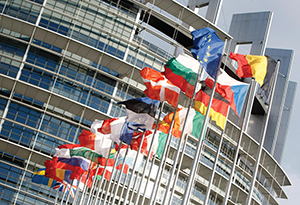
Membership of the European Union has undoubtedly raised productivity, investment, trade and living standards compared to some speculative counter-factual scenario. Empirical work by Campos and Coricelli suggests that a combination and mutual interaction of favourable productivity, inward investment and financial flows help explain a lift-off in economic performance since the 1970s. Making trade has been good for Europe not just in terms of boosting economic conditions but avoiding wars and conflicts (the history of peace Europe since 1950s has been unprecedented since the antiquity). The work of Campos and Coricelli suggests that intra-industry as distinct from inter-industry trade, benefitted greatly from membership of the EEC/EU with most of this attributable to technological innovation and competition.
Why has the EU project gone in such a racially different direction to what was on offer in the 1970s or 1980s? The answer lies in a fundamental change in global politics over recent decades. Rather than a levelling up to shared standards on employment rights, corporate taxation, social entitlements and democratic accountability the Union is at risk of levelling down to a base standard more akin to a North American social model.
What has emerged is not a federal Europe or anything near it but a loose confederation of nation states intent on pursuing national capital interests in a world where geo-politics has shifted since the end of the cold war. Far from a single monetary and fiscal union we see a fixed-exchange rate regime for some members of the EU waiting to be buffeted by the next political or economic crisis. Instead of monetary, fiscal and political union we see an unbalanced Europe with some of the trappings of federalism but none of the substance in terms of full fiscal transfers, mutualisation of debt and free movement of capital. Once capital controls and deposit bail-in happened in Cyprus the precedent was set for another such event.
Profound questions are raised that go beyond the immediate risks or opportunities posed by short-term politics. A worrying feature of many EU-related debates and national deliberative referenda whether on Brexit or fiscal rules or Treaty change is that the case for further integration, continuity or staying in is governed less by passion for a dream and more by fear of not going along with the ‘only realistic option on the table.’
Implications
Northern Ireland stands in a particularly vulnerable place. Its fate is sealed by UK national politics and the outlook is decidedly austere for the immediate years ahead. A Brexit could hit Northern Ireland particularly hard given that it is the only part of the UK with a land frontier with the EU. Moreover, a Brexit could reignite the Scottish question with renewed urgency and could precipitate a break-up of the United Kingdom further down the road. Where would that leave Northern Ireland economically and politically?
And what of the Republic of Ireland? Nobody is seriously suggesting an Irish exit from the EU or a renegotiation of the contract as it stands. However, were the UK to leave the EU following a referendum this would pose huge challenges to the economies of both Northern Ireland and the Republic. Questions and major uncertainties are opened up. Would there be border controls again at Killeen and Beleek? Would a European Health Insurance Card be recognised in a Belfast hospital in respect of a visitor from Cork who had an accident? What of the 15 per cent of total Republic of Ireland merchandise exports that is destined for the UK? And what of the 30 per cent of total merchandise imports to the Republic sourced from the UK?
Merchandise exports include the produce of agri-food and traditional industries with a preponderance of small firms employing a large number of workers. A UK outside the EU might negotiate more favorable treatment of agricultural or food produce from other parts of the world to the detriment of Irish exporters.
Last November, The Economic and Social Research Institute assessed the implications of Brexit on Ireland. Their focus was exclusively on the Republic of Ireland. The report provided a very bleak view of the economic fall-out for Ireland were Brexit to proceed. Some key findings indicate:
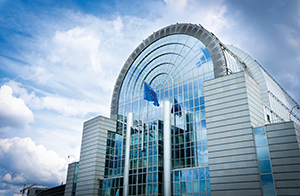
• a likely significant reduction in bilateral trade flows between the Republic and the UK: ‘The impact could be 20 per cent or more’ with disproportionately large impacts on some sectors more than others;
• likely adverse impacts on Northern Ireland exporters (separately, official estimates put the total of exports from North to South at £3.5 billion or just over 10 per cent of Northern Ireland’s GDP);
• a likely fall in foreign direct investment in the UK and a contraction in UK economic demand (especially in supply-linked chains from the Republic to the UK) would adversely impact on the Republic;
• interconnection of electricity between Ireland and the UK including Northern Ireland could be impacted upon. UK demand for renewable energy produced in the Republic might be less were it outside the EU given EU climate change targets;
• given the Republic’s reliance on gas and oil imports from the UK an unlikely but sudden disruption in supplies could leave it highly vulnerable;
• Border controls, restrictions on migration and a review of residency rules are open issues post-Brexit with implications for an estimated 470,000 Republic of Ireland born residents in the UK. In the Republic of Ireland, there are an estimated 290,000 UK born residents.
By way of analogy the question of Brexit is akin to a break up of a marriage after decades. Nobody – including close family members is going to be economically better off as a result, certainly in the short-term and probably in the medium-term as well. Rather, they are very likely to be worse off. The risks of break up involve larger potential downsides compared to staying in and the prospects in the very long-term are impossible to predict.
Ultimately, the ‘British’ question over the EU is linked to the ‘Irish’ question and the ‘European’ question. What sort of society and economy do we really want and are prepared to work for? Western Europe saw, from 1946 to 1973, 30 years of extraordinary growth coupled with a strong social market economy in most places (but not in the case of the Republic of Ireland for some of that period). There followed a period of economic ‘liberalisation’ and dismantling of many aspects of the post-war social model. What will follow next? This is where the debate needs to go on these islands.

